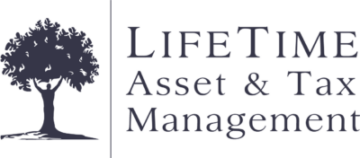The Corporate Transparency Act (CTA), effective January 1, 2024, will affect approximately 32 million companies in the United States. Under this legislation, impacted legal entities must report information about their beneficial owners and controlling parties, among other information, to the US Department of Treasury’s Financial Crimes Enforcement Network (FinCEN).
LifeTime Tax Management will not be offering this service to our clients. However, we want to ensure you are aware of this new requirement in case you haven’t already heard about it.
We are not providing this service as we believe it falls into the realm of legal services more so than accounting services.
Here are two links to government website that explain these requirements:
https://www.fincen.gov/boi-faqs
When to File:
- Entities in existence prior to January 1, 2024 – prior to January 1, 2025
- Entities created or registered during 2024 – within 90 days of formation
- Entities created or registered on or after January 1, 2025 – within 30 days of formation
Who is considered a Beneficial Owner? A beneficial owner is an individual who either directly or indirectly: (1) exercises substantial control over a reporting company, or (2) owns or controls at least 25 percent of a reporting company’s ownership interests. Because beneficial owners must be individuals (i.e., natural persons), trusts, corporations, or other legal entities are not considered to be beneficial owners.
Who is considered a Reporting Company? A reporting company is: (1) any corporation, limited liability company, or other similar entity that was created in the United States by the filing of a document with a secretary of state or similar office (in which case it is a domestic reporting company), or any legal entity that has been registered to do business in the United States by the filing of a document with a secretary of state or similar office (in which case it is a foreign reporting company), that (2) does not qualify for any of the exemptions provided under the Corporate Transparency Act. An entity’s activities and revenue, along with other factors in some cases, can qualify it for one of those exemptions. For example, there is an exemption for certain inactive entities, and another for any company that reported more than $5 million in gross receipts or sales in the previous year and satisfies other exemption criteria. Neither engaging solely in passive activities like holding rental properties, for example, nor being unprofitable necessarily exempts an entity from the BOI reporting requirements.
This is the link to file the BOI: https://boiefiling.fincen.gov/

